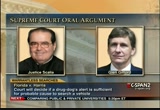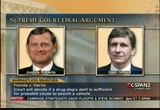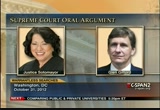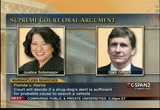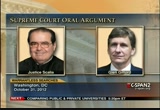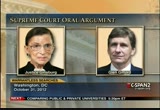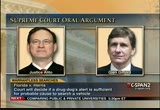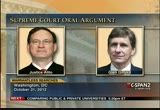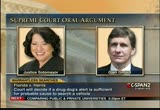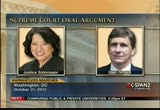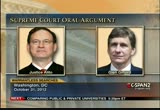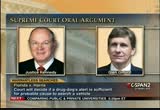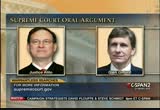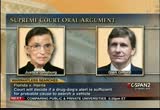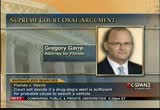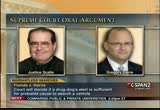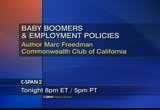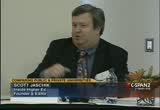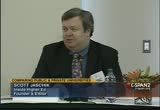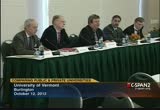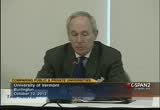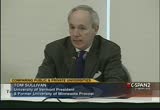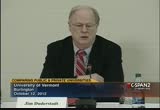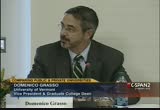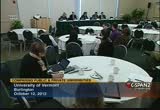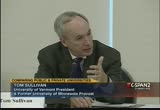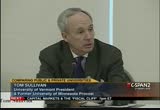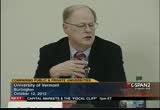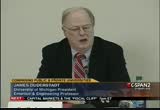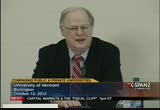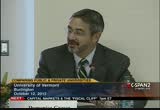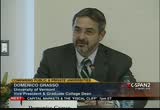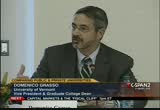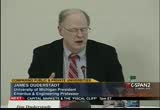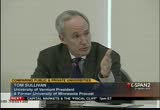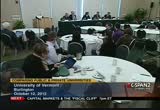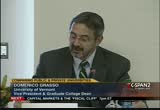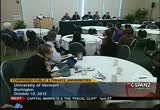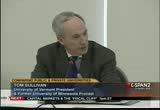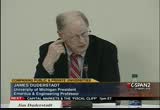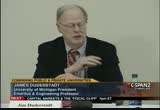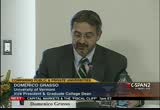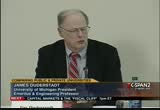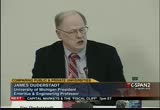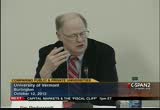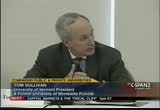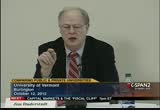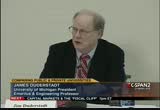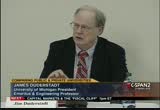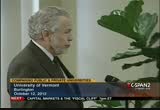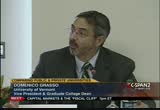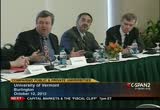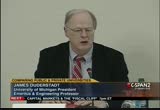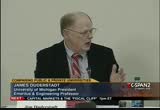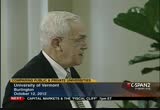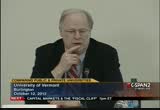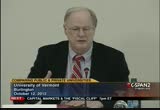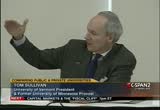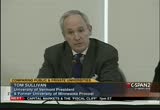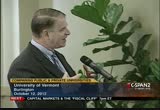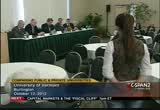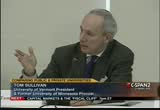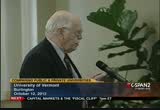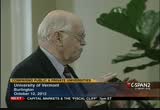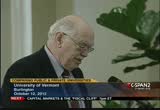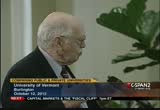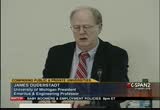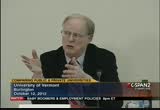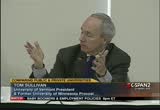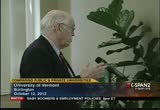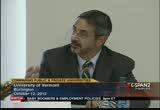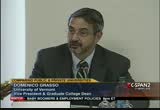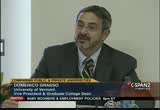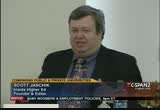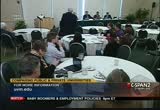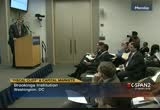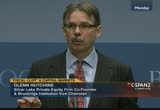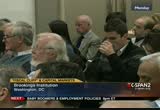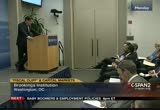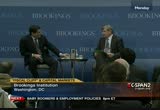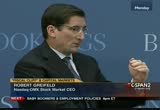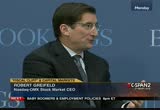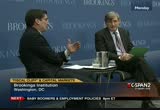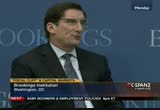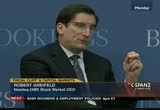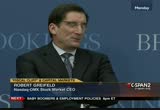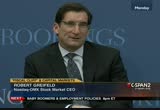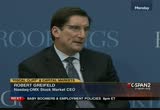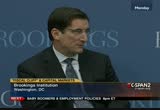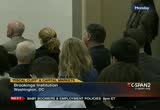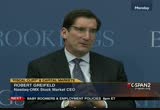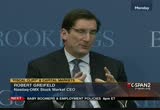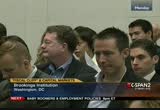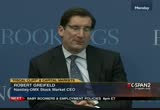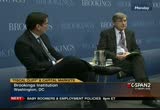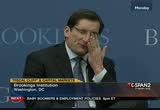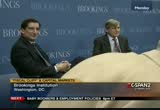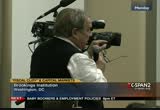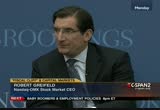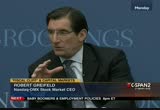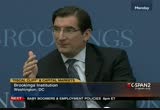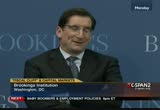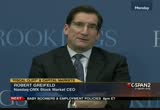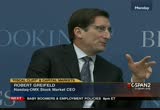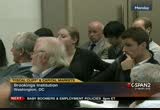tv U.S. Senate CSPAN November 21, 2012 5:00pm-8:00pm EST
5:00 pm
the dog is well-trained. >> i'm getting back to -- i'm confused about the difference of must and is required. >> what has the pledge had before him or her a record this is where the ball went to school. this is where the dog was certified and trained every couple of weeks or whatever it is. and the judge says have there been any field records? no. the judge says well then, no probable cause. that is reversible error, right? >> it is reversible if we know what went into the training and certification. was that training and certification sufficient to prove the dog was reliable and include the use. second you have experts testify about whether what constitutes a good training program? >> not necessarily experts, but the officer that participated with the dog can testify as to
5:01 pm
5:02 pm
trailer record to be adequate in that circumstance? >> that would be one of several shilling's that would make the training records adequate. also, we want to know whether there are destructors use in the field. however, i don't believe that the record supports -- and this is arguable the minutes training. all the state had for the initial training was deputy morris, a certificate, one certificate that said this dog was trained by the police department for 120 hours with deputy morris and another certificate saying that the stock was certified by narcotics certifications, again with deputy morrison of for one year. >> i guess what i'm asking you is, as a matter of law you want us to hold and that training records are inadequate unless what? and less you want to specify at things call -- a list of things
5:03 pm
they have to include. >> discord in the number of circumstances has provided examples that can guide a court and perot will cause determinations. the test, the coor's specified where evidence can be so strong that it substitutes for evidence on another prong. the court pointed to a wealth of knowledge that can be relied upon such as the winter climate. >> you are defending a florida supreme court opinion which says must. you cannot just say, you know, i am not asserting any particular thing is necessary, adjusted tell the. you have an opinion here in which the florida supreme court says must. it must include, you know, the feel of things. you disavow that or you want us to ignore it? >> that is not the holding on which i am relying here. the holding and which i am relying is that training and
5:04 pm
certification alone, the mere fact of training and certification alone is not sufficient to establish the dodger liability. and hence the language about must, rubber, the florida supreme court did not just say that failure to produce one of these elements necessitated reversal. then when engaged in the totality of the circumstance test. several lower courts applying that case, applying harris have reached the same conclusion. in two of those cases -- >> this is absent in the fatality of the circumstances. and to none the less poll that there was probable cause, must does not mean must. >> must means must if the state has the record, if the records exist and the state -- >> it lists a long train. the provision of records here
5:05 pm
reforming. >> i read that as if those records exist, the state must produce them. not only does it bear the burden of proof, it is the only party that can produce these records. >> just completed the training course. the training program. there is no field record. >> if that -- if the train is sufficient, if it has those elements that demonstrate that the dog is reliable, those are the circumstances. you have the totality of the circumstances there the circumstances don't include any field performance. yes, under that circumstance the trial court can find the dog to be reliable. >> what is wrong with the state's argument that field performance records are not very probative because dogs and pet owners don't detect physical presence of the substance that created the odor. therefore, so-called false
5:06 pm
alerts, cases in which a search was performed and no contraband was found and not really cases of false alerts. what is wrong with that. >> you don't know whether their cases of false alerts are not because they will always point to the possibility of residual odor is a reason. we know from the studies that have been cited in the brief that there are other reasons that dogs alert when that cannot be verified. simply dogs make mistakes. dogs air, doxy excited and will alert to things like tennis balls and trunks or animals. >> that may all be true, but then what can one infer from the fact that the dog alerted a number of times when no contraband was found? at think what you just said was the explanation could be a dog detected an order but the substance was and there, or it could be that the dog was cued or confused or not very
5:07 pm
competent, so what can one infer from these field performance records? >> well, what you can infer is this dog is not a very accurate indicator a probable cause. probable cause is whether georgia likely to be found in a search that follows an alert. >> unlikely to be found if they're is a residual odor of drugs. drugs are no longer there. so it is not an incompetent dog when he alerts because of their residual over. >> but if a dog has previously alerted and no drugs and been found because the dogs hyper acuity causes and to small drugs that were there two days or two weeks ago, then the next time that stock alerts, it's less likely the probability declines the jurors will be found. it goes to what a probable cause measures rather than what the dog training and certification to minute leisure, and that is the likelihood, the reasonable probability that jurors will be found.
5:08 pm
>> council, al is that any different than a police officer comes to a car and smells marijuana? he's never going to know whether there is any more in the car or not. it could have been smoked up an hour before, i don't know how long marijuana lingers for. and not sure why residual odor affects the reliability of the dog. it's no different than an officer is not something. he doesn't actually know whether it's physically still present and not, but we are talking about probabilities. >> that's correct. and the difference is that the police officer can describe what he had smelled and can say, is now marijuana. of the dog tells the police officer is, i smell something i was trained to detect. if i am operating correctly. but getting to this issue of residual odor from our position is that an alert where no drugs are found means that the dog, it
5:09 pm
detracts from a probable cause in that instance. but that is not the only rule available to the court. residual other, whether an alert was to residual of order, that's something that can be litigated in one of the lower courts. the florida supreme court. the court looked at the field performance records and it found several of them well supported on the issue of whether the alert was probably to the odor of drugs. several it did not find. so that is an issue that can be litigated. another possibility -- >> excuse me. nothing is found, how can you tell whether the dog alerted to a residual over or simply made a mistake? there may be cases where there is other evidence to suggest the drugs were present in that location and therefore that is something from which you could infer that the dog was alerted to residual order, but the fact that you don't have evidence of that does not mean that there was a residual of. >> no, it doesn't mean that
5:10 pm
there was a residual of. but, again, you go back to what probable cause measures to my belief. and the florida supreme court did not demand evidence a residual of order. what he did is say that the field performance records exist, then the state can't explain unverified alerts in the field as residual loader and a court can then evaluate that. >> what is the magic number? what percentage of accurate alerts or inaccurate is enough probable cause? >> this court has always hesitated to assign percentages to probable cause, but in the lower courts once you get below 50% billable cause is a much less like to think, assuming that there is no other party of corroborative evidence, no other reasonable suspicion factors. i would like to talk briefly about the oregon supreme court
5:11 pm
and what that court did in several cases composer and foster decided in 2011 independently of the lower supreme court decision. in foster the oregon supreme court had a dog that trained initially with the same handler, mike here, where the evidence was very strong as to the features of the training and certification program. and where that dog had to my belief, a 66 percent field performance record. now, the court said that the dogs reliability can be established by training and certification and performance in the field. the court added, it did not think the performance in the field was the most reliable spectrum, but it is relevant. the court consider that 66% percentage. but then on the same day, there was a dog dead trained initially with a different handler. the handler ultimately testified the very few details of the
5:12 pm
ongoing training and certification. foster, the certification was with an organization the required 90 percent success rate and held that there was no such testimony. in this officer, like the officer here, did not keep field performance records when the dog alerted and address are found. in hells of the court found that there was insufficient evidence of reliability, and i believe that those two cases demonstrate what is the correct line to draw in navigating what is reliable. on several arguments made by the state the argument was that the maintenance training included blanks and the dog did not a lawyer for blanks. the record, we believe, supports the florida supreme court collision that planks were tested, the dog was tested, but there was no testimony as to whether the dog in lebanon. subsequently read certified.
5:13 pm
the state argued the officer testified that the dog was scheduled for another set of vacation. we don't know whether the dog was ever recertified. the court can affirmed the florida supreme court simply on the failure to produce adequate documentation of certification and initial training. and on the fact that this dog was never certified with his trainer, with his handler. it did not initially work with his handler. you have a doctor who was reliable enough to demonstrate trouble caused. the florida supreme court concluded, the conclusion was correct unless there are additional questions. >> be alert here could have been to residual odor or it could have been toy trucks inside the pickup truck. because the alert was in front
5:14 pm
of the front door handle. is equally likely that it was residual other war it was inside the pickup truck. can the police establish probable cause when what the dog alerted to may well have been a residual of iran nothing in sight? the dog did not alert any place other. >> it can constitute probable cause. we testified in this case, believe that the seller was to residual other. >> did you say can eric can't? >> it may. can costa depot will cause in this case. we testified that this dog alerted to the door handle. in his prior experience when the dog alerts to the door handle it means that someone who has
5:15 pm
smoked or consumed drugs are handle drugs had touched the door handle. now, testified that in his experience when he has seen such alerts and conducted a search drugs were found inside the vehicle, and that residual over alert was support pro will cause. it was insufficient evidence that this residual over alleged, the residual water alert of this nature without finding drugs after morris supports pro will cause. >> at least we don't have to worry about mothballs in this case. is that right? >> no mothballs to my knowledge. >> was that the holding, that there was no probable cause because the dog alerted to the wrong part of the truck? >> no, your honor. >> any part of their reasoning? >> they were concerned about residual odor alerting without any explanation as to how
5:16 pm
residual over alerting supports a probable cause. but the primary basis for its decision was the lack of performance records and the lack of records supporting initial training and certification to show that the stock was reliable. >> and if we think they're wrong , i suppose you would say the court should not reverse but should. [indiscernible] the question, alluding to the door handle. is that enough to establish probable cause? >> well, i don't think the door handle itself is posit. the door handle plus the lack of evidence that we have a reliable dog. the reason you need a reliable documents have been somewhat training and certification means is that there are no standards, no standards whatsoever for initial training. some states to have standards for training and certification. florida's not. no standard for maintenance
5:17 pm
training as well. in order to have probable cause you have to know what that certification, what that training means. if you don't have standards and will tell that for you. if there are no additional questions i will conclude. >> thank you, counsel. you have three minutes. >> thank you, your honor. first of trouble caused, not only to likelihood of contraband present, but the likelihood that there would be evidence of a crime which would include the so-called residual of evidence that drug paraphernalia, someone had recently smuggled illegal mike tyson the vehicle the like, so the alert to the so-called residual over drugs is just as service to the question a problem will cause as an alert to drugs themselves. the fact that there was an alert to the door handle area of the car does not negate in any way the parole we will cause. the door handle area was where the center of illegal narcotics
5:18 pm
was the strongest. can determine liability. the performance and the control training environment. there is a real danger with suggesting that deal performance records are permissible for the suppression hearings to john's the reliability of dollars because one is not a controlled. we don't know whether the dog did alert to residual voters. jurors that were hidden are simply not found. >> would you allow counsel to ask about that? >> i think they could ask about it. i don't think they can demand the performance records themselves. that would be a huge deterrent from law-enforcement. third, they did train together for nearly a year.
5:19 pm
did conclude the 40 hour trek detection seminar, there was an alabama police department and the certificates page one of five of the record. second, as justice scalia pointed out, all these centers are aligned with ensuring the reliability of drug detection. it is not in the police interest to have a dog that is inaccurate in finding contraband or is inaccurate in putting an officer in harm's way. the relied upon dollars for law enforcement and the eastern areas sense of smell for centuries. protection dogs and this was the protection dogs are invaluable members of law enforcement community today. best the court to reverse the decision below which could have some serious detriment to the use of the valuable tool. >> thank you, counsel. >> tonight in prime time here on c-span2, author mark friedman
5:20 pm
discusses his new book, the big shift, navigating the new stage beyond midlife. he discusses how the baby boom generation is switching to new careers later in life. that begins at 8:00 p.m. eastern , again, here on c-span2. >> there are many people who might even take issue with grant saving the union during the civil war. didn't lincoln do that? well, yes, he did. i will not cigarette was the only person who save the union, but he was the commanding general of the armies that put clinton's policies into effect. he was the general who accepted the surrender of the army of northern virginia under robert e. lee that ended the war. so if anybody who won the war on the battlefield, if you could say that any one person did. of course, you can't, but one of the things we do in history is we generalize, simplify. history reality is simply too
5:21 pm
complicated to get our heads around if we deal with it in its full complexity. so rant saved the union during the civil war, and i do contend that grant saved the union during reconstruction as well. >> from obscurity to a courthouse in appomattox and 1600 pennsylvania avenue, hw brand on the life of ulysses grant thursday night at 1015 eastern, part of book tv four day holiday weekend starting this thursday on c-span2. >> duties this army said it becomes a volunteer army. go and find your soldiers. go find them in the villages and towns. we did that. over five or six years we created an absolutely splendid force of young men and women who are willing to serve their country as volunteers. they had the same tradition, the same culture, the same loyalty
5:22 pm
and dedication as any other generation of americans. and they proved themselves in the gulf war, panama invasion as they prove themselves in the last ten years. but to the theme we have to keep in mind is something that president lincoln said in his second inaugural address, care for those. widows and children. care. it means, never forget that they are carrying the american spirit, carrying the american traditions with them. when they get injured, when they get hurt, when they come back to be reintegrated into society we have to be waiting, not just a thorough government, not just the veterans of ministration to my fellow citizens. we have to care for them. >> about the treatment of returning veterans. thanksgiving day, and c-span at 8:00 p.m. eastern. just after 930, leaders of the film and music industries talk
5:23 pm
about hollywood's impact on american culture. later, space pioneers and nasa officials pay homage to the first man to walk on the moon. neil armstrong. just before 11. >> last month the university of vermont hosted a conference focusing on the future of public research universities. the organizers kicked things off by comparing private universities to public universities, including faculty of funding, and the ability to availability of major's that lead to jobs. this is about an hour-and-a-half. >> welcome back. sorry about that. morning. welcome. the concluding day of precipices or crossroads symposium on the future of public research universities. before i introduced the panel,
5:24 pm
just to remind you all, as you may see, we are being filmed for a c-span. will we get to the q&a portion today it is important to use the microphone. you will do better than i. so thank you for your interest. i want to introduce the topic that we are going to focus on first this morning and then turn it over to a discussion with our panelists. then to get you involved. we are talking right now about research, scholarships, and the arts. the great public research university. and, in essence, what we're talking about, i think, is the faculty. and the faculty role and to the faculty are and, as well, the future faculty including the graduate students. and i would argue that we are in a prime a huge challenge in the ability of public universities and to recruit the best, retain the best, and to sustain the kind of conditions that create outstanding scholarship as well as teaching.
5:25 pm
it is the unremembered today, and i find that when i speak to audiences in the public and say this, it surprises them that 50 years ago it was not a given that the best programs and the best finance programs were at private institutions. in fact, the for much of the history of american education, the very best in many areas would be found in the public. people have heard of the renown of the berkeley physics department, although now every year people talk about whether it is in decline. but think about programs like history at the university of wisconsin, social sciences in michigan. you have all sorts of areas where, for much of the history of american education, the very best to not necessarily go to the ivy league. today, though, we are at an end to -- we are in a time of significant disadvantage for
5:26 pm
public universities attracting and keeping faculty. it to give you some figures on salary, just to set the stage, the average full-time faculty member at a private research university this year is turning little more than $152,000. at a public that figure is $120,000. the average salary for an assistant professor at private research university is 89,000, which is greater than the average for an associate professor at public universities which is 80,000. it used to be that if you look at research universities, public and private, that were close to one another. dealing with the same cost-of-living. many times the public paid more or was at least equal. now if you look at stanford and berkeley, stanford is paying on average $40,000 a year more to
5:27 pm
their full professors at berkeley. duke, $30,000 more on average in chapel hill. in fact, chapel hill professors earned less on average than those at wellesley college, a very great institution, but in liberal arts college which typically would not have been having the salary of a great research university. here in vermont, look at the data. middlebury pays more on average and the university of vermont for every faculty. and if you look at the figures, the top figures for a system professors, talking about the future talent, you have a situation where there are nine universities in the country where new assistant professors earn six-figure salaries. eight of them are private, and the one that is public is primarily in the constitution in, so arguably on its own pace
5:28 pm
scale. the future here very much favors private in attracting and retaining challenge -- talents. and it is not just in terms of salary because obviously many people choose there field not because they want to get rich, but for -- there is a calling to the academic life. but it is beyond that. as put to our research university president of a public a a u.s. institution this year, and we were talking about counteroffers that his institution has to make. and he said that when he was lucky he could raise enough money to find enough money somewhere to match many salaries , but what he could not match was a condition -- the conditions of the building, the ability to produce the number of restaurants desired by faculty members to work with them, and he also could not match a coor's reduction where a private research president can offer pretty amazing packages overall
5:29 pm
to his star faculty. very hard for many public to match. and this turns out to be all over the place. as a result we see right now when you're talking about how you sustain excellence in scholarships, research, you see a lot of soul-searching going on in public higher education where institutions are trying to think about how private they can become. so many institutions have basically given up on the state. and as i was reminded here just this morning, there are institutions like the university of vermont that have done for years, straddled a public-private relationship and have some characteristic, some history in both. for many institutions there is no such history, and talked of becoming more independent can be very controversial and very upsetting to many people. and yet, to many leaders of public universities and if they don't talk about that they feel
5:30 pm
that their excellence is in danger. we see, there is a big debate right now at ucla over giving up all state funds for its business school. you see the state two years ago at the university of wisconsin, madison, where a chancellor tried to become more independent and perhaps it is not a coincidence that the chancellor is that the president of the liberal arts college in massachusetts and no longer in madison, wisconsin. ..
5:31 pm
with the future of research universities and public research universities in particular. to my left we have -- and at the other end we have william dabars a research fellow for the university did design and the president of arizona state university. they have answered a number of questions in advance, i'll draw from and you have the materials. i wanted to start by ask all the panels and we'll go down starting down the with -- when you think about scholarship and research should there be a different aspiration between public and private universities. or is it the same? [inaudible] >> i think the answer has to be a definite no. there should not be a difference. i think the public when they are
5:32 pm
supporting regardless what level, public institutions need to know they will be of the highest quality and first rate in compete on the global stage for talent for faculty, and students. i think it's particularly important for public universities that to raise those expectations and aspirations for quality and excellence in our students and our constituency should not expect anything less. there is a cost, z you suggested in the questions and earlier comments. there is a substantial cost to that, and i think we simply have to make a be better case than we have been making to the political and public constituent as well as to the private constituent, the alumni, donor, and foundations and other entities. why higher education in this country is absolutely critical. if this country is going to be in the forefront and global issues of today, it has always
5:33 pm
been, as you have suggested in the questions, this it has been our big public research universities that have lead this country in breakthrough innovation and scholarship and research. and we simply can't lose that investment. we have to make a better case with our constituents. >> higher education in america is intensely competitive. we compete for faculty. we compete for students, we compete for philanthropy, research grants, some of us are fortunate enough to compete on the football field. we all have aspirations for excellence, whether we seek the best and we tend to recruit from the same pool. but we are different in character, and that difference to some disagree is an advantage and recruiting faculty and students in other cases. particularly when we look at our
5:34 pm
support can be a challenge. let me tell a story a that illustrates this. back in the days when i was learning to be a university administrate. i had opportunity to spend an afternoon with derrek. at that time michigan and harvard issue a communication channel between public and private. he noted correctly that the vast wealthy of hard could be focused in ways that were hard for an institution like michigan to be imagine. we can deploy resources to recruit outstanding faculty and students. it's difficult for you to compete. he went on to say and institutions like michigan had one advantage over the elite privates. that had has standing apart. the combination of excellence and intellectual span. the capacity to take try risk, try new things in a way the true
5:35 pm
private were frequently enable to to do. if harvard tried an experiment in the new program, it failed everything was in jeopardy. at the place like michigan we can launch significant activities and if we fall flat on our face, we can pick ourself up. an example i used is michigan during the early 1990's started to launch one of the major programs in human gene therapy. ahead of most universities in the country. we built clinical trial space in the new hospital. and found ourself went thirty years ahead of the time. on the other hand during the late 1980s we were asked by federal agencies to build a networking that would link them together with the scientist and lo and behold that became the internet. that was a big experiment on the part, that succeeded. in a sense, it's the excitement of large public universities the capacity take risks and in some cases, change the world that gives us a certain edge to
5:36 pm
attract 25 end that program -- perhaps the elite privates may not have even though they pay higher salary. >> scott, i think you ask an important question regarding public and private. i like to extend the context yulization beyond that between public and private in the united states. we are not only competing public and private in the united states, or competing on a global scale. and i think that the publics have a sense of social responsibility that find its roots in a grant that many of the privates did not. where from they came is, i think, a projection of where in part of where they're going to go to. i think that the publics may not be as well resourced, and president made a point the other day about the fact we're not privatized the publics, we're
5:37 pm
trying to be more self-sufficient on the public side of the academic structuring here. but i think that the -- what the bottom line is that a publics have because of their social responsibility to grants and other state appropriations and state connections a sense of responsibility to serve a greater part of the population, and i think that that finds not just the route but the application in what they decide to pursue in terms of their research enterprise but also how they pursue it. i think that the resource issue is certainly going to be a question and effective. it's going play out across the entire academic structure in the united states. it's going to have repurr cushions that go across the globe.
5:38 pm
>> we'll end -- i think it's important for the pub public to bear in mind in terms of scale public research universities produce something like 85% of the undergraduate in the nation, and a majority of the graduate students and something like 60% of the all federally funded research it's been pointed out that the entire undergraduate student body of the ivy leagues put together would fit inside the football stadium of any public university. the i think it's important for the public to realize that teaching is only one , i mean, this is pointing out something obvious, but teaching is disrve the story of mission of public research university is vast and
5:39 pm
the trance more national impact on the quality of life and collective standard of living. the list of discoveries that the come out of the research universities is something that most people aren't aware of. the often cited from lasers magnetic -- imaging global research. the al gore rite -- we take for granted come out of the public and private research universities. >> i want to -- you all seem generally optimistic about the ambition that public universities can have. i want to push back a little bit. because when i read the headlines when i'm search forking news, i see public research universities talking about things like selective excellence, or you hear the mantra that inspires program.
5:40 pm
the idea that these days public research universities need to too cuss on a few areas and sacrifice breadth that one might find at the top private universities. michigan might been an exemption to that rule. i'm wondering does that limit the areas where you can have these research breakthroughs? does that say it's only going to be in some areas that we're going 0 to compete? >> [inaudible] once you go to the university history and current circumstance. but i think your question suggests in jim's comment noted the difference -- where we have great strength and comparative advantage. obviously that's where the investment should take place. there may be things we adopt have high quality or particular
5:41 pm
distinctiveness. and perhaps we have to declare in a public way that given the constraint budget we live with we simply can't do certain things anymore. but i think that strategic and also pelters -- permits us to make the investment where with have strengths and comparative advantages. and perhaps engage much more in the collaborative course sharing on the everybodial side. but research infrastructure by many of our universities and colleges. we don't do that particularly well. i'm -- jim would know this from his experience, of course, i'm reminded of the great year fifty-year success in the big ten and chicago universities the cic the committee on institutional cooperation. over fifty years, the public research university and the university of chicago have collaborated significantly on
5:42 pm
infrastructure, on technology, on course sharing over 250 courses, i think are now being shared between and among the universities. we simply have to do a lot more collaborative interaction with each other to be able to increase the scale so necessary for the investment. if we're going have those breakthrough research opportunities that we have seen in the past. we can't do this all alone individually. and we can't do it without each of us trying to be distinctive in the own strength of comparative advantage. the competitive issues have policy character as well as cultural character. i thought it amusing if you contrast stanford with berkeley, stanford is far and away the most public of the two institutions. we have to include the tax benefits they receive not only for charitable contribution but earnings on the endowment which more for the support of bervegly. a sense our government policy
5:43 pm
right now does have in place certain benefits for private higher education. much the same way that you say fifty years ago public policy tended to favor public university. cultural is also an interesting feature. at most place -- [inaudible] that is the quality of the faculty they are able to recruit. and public universities, the tradition has long been they recruit outstanding junior faculty and develop them within the institution. and the elite private, you general find more theming lateral appointment at the senior level by rating the public csh raiding the public institution. when there's comparable levels of resources for the institutions, that kind of give and take tends to balance out. in the current situation part of the challenge is the danger the public universities have essentially become farms for the elite privates. to balance that, however, is the
5:44 pm
case that while salaries for young faculty in private institutions may be somewhat higher, their survival rate is lower. once again because the cultural is that most sten your deployment are not made through the development of young faculty. but rather through picking off already developed faculty from other institutions particularly public institutions. the cultural and follows factors really shape the nature of the competition between the first institutions. probably as much as the raw salary numbers and the resources they may have available at the time. >> i want to followup on that particularly the issue of raiding the faculty. >> reports come out like you have been involved in, that focus on the challenges facing the public, private research university presidents almost to a person will ash statement of support is. i have gotten several of them if they would -- not raiding that. and they -- i have dwroatd find
5:45 pm
someone willing to take the pledge. and i'm curious, if they are so concerned about the trading of talent through the public should the private colleagues say we're not going take advantage of it? >> several years ago henry an i tried to broker just it such a dialogue in a closed session. [laughter] difficulty is again the critical point of focus should be the cultural of the deeds because they're the ones that get rewarded for raiding or developing it's own. the case that has to be made more constructive in a sense the quality of a private university is heavily depended on the quality of the public. we generally produce most of the students that go on for further graduate education at private institutions. to the degree that we develop many of the faculty they raid from us if our quality -- so [inaudible]
5:46 pm
the quality of the faculty. the inner dependence is the issue that has to be stressed. whether you have a discussion or not is another question. i think the key point here is that the publics and the privates really have to recognize that they are heavily dependent on one another -- has a huge impact on the other. >> i'll turn it to the other half of the panel. i'm curious, do you feel that the privates who compete with your institutions -- take advantage of the inequity that exist today? >> are you asking scott if they raid and offer more attractive packages? >> and do so in a way that's takes advantage of the relative strength? >> well, thing if you were at the private, and your responsibility was to build best program you could, i don't see how you would not want to do
5:47 pm
something like that. you would leverage your resources to take advantage of the opportunities in front of you. and i have to say that i was in -- personally in a situation i was at the public university and i was slice ited by an ivy league school that made an attractive offer to go there. i eventually decided go elsewhere. i think that it is, if you are successful at one institution, and it's not just i want to be clear about this, it's not just privates raiding publics but we have upward division publics raiding lower division public as well. it's part of the market system in which we live. i imagine you would not want to play the best advantage for you can to build the best program. i want to go back to one of the original questions, with regard to focus research areas. i think, that different schools have different capacity, different resource, and different scales.
5:48 pm
i think some schools and the university of vermont -- across the university to be competitive with the best the nation and world. but jim when he was at the university of michigan produced a strategic plan that used excellence but he charged each of the colleges and schools there to develop the aspire of excellence. they had a larger number. but those are not something that are immutable. once they reach their stay -- they can continue to grow that. it's something that evolves over time. you don't say the school will only focus in the two things and that's what it's going focus for the rest of its history as a institution of higher education. it's just a plan to take advantage of the resources that you have in an institution, build strength, excellence and move on and continue do that.
5:49 pm
but usually even harvard cannot build across all the disciplines equally and not make strategic decisions. that's what presidents do. >> and arizona state how does it look? >> well, i think it's important to bear in mind that all public universities as well as privates have been through a period of fiscal crisis, and the investment in higher education for publics has been historic. i mean, arizona state had its legislative support produced by the by the largest percent age and absolute dollars of any public university. this is an enormous impact in terms of your focus on the faculty. the -- american association of
5:50 pm
university professor has pointed out that the decline in the percentage of tenure faculty over the past several decades has been a huge proportion. there's something like 75% -- only 75% of total instructional staff at public universities are now con ting i want academiaic inspect has a long-term impact as well. which private universities can leverage to their advantage. >> scott, could i interject? your question had to do with raiding with regard to faculty. i actually think the competition is more severe today on what we might call -- has beened called the arms race on facility. many of the universities when the recession came in stwaight at either had a higher -- freeze or pause. it's substantially slowed down. the competition you were speaking off. -- of. i'm not sure there's going to be
5:51 pm
an abatement of the increase of facilities that enormous cost whether the laboratories or other facilities student union, athletic facility, i think the real competition here is in the facilities right now, and high school students and their parents who come to campuses are repressed by that, quited frankly. we just need to make a better case on why the fanciest or the shiniest may not the best. it's certainly not the best from a public policy or public goods standpoint given the cost and trade-offs associated with where the investments are being made or not made. many of those may well should be made in more scholarships and financial aid galore the problem of affordable in this country as opposed to building more giant buildings that compete with the college next door. >> i want to shift to a subset of the areas of scholarship and research and faculty life.
5:52 pm
that would be the humanitarians. i'm in the position where i hear story after story from faculty members at frankly all kinds of institutions but particularly i would say publics where humanities scholars feel they are at the bottom of theet totem pole. and when centers of excellence are defined, however excellent the literature faculty may be, they're going lose out to the nano tech division. and while the grass is always greener, i'm sure there's some of that with universities with everyone assume that the department across the quad is treated better, i have to say is something who gets visits from the university presidents when i asked them what they are excited about always more always it's likely to the nano tech center of. i don't hear people talking about research development in
5:53 pm
the humanity. young faculty in the humanity are impressed. -- depressed. the issue of contingent faculty seems difficult for those in fields like literature, and many of your universities are still putting out a lot new ph.d. in the fields, but not necessarily hiring them. is it worse in the humanities and what can be done about it? anyone want to take a stab at that? >> sure. please. >> well, i mean, i think the humanity feel em battled in that sense. they absolutely represent the academic core of the university of what moral envision as dan pointed out in his chapter in the book he had edited commemorating the passage of the morel act that we're celebrating
5:54 pm
the 150th anniversary this year, and say his vision was for liberal education as well as toll tal yaren and as the american research university e americaed from the classical -- and the science and technology certainly science and technology draws more federal support, but without the humanities and -- there is just absolutely extraordinary work being done in the humanities which informs our intellectual culture, it's pervasive, i think it's just not as -- it doesn't produce the breakthrough technology as you said that the nano technology cousin. >> do the panelists think that the humanities are getting the
5:55 pm
short end of the stick. are they just jealous of the new buildings for the engineering college? >> i think that there's no question they feel downtrodden. in reality, if you look at the fundamental purpose of the university education, although we have the vocational focus right now sometimes said that the purpose of the college education is not to prepare a student for the first job but for the last job. that requires a very broad education involving the arts and humanity and social sciences and natural sciences as twoal give the individual a capacity to continue to learn to adapt to change, we believe right now looking at the students are going to change not simply jobs but entire careers. many times during their lives. those careers will be longer than ours were. and therefore they need a much broader education in order to prepare for that. i think that's one of the great frustration in our society.
5:56 pm
they had a sort-term focus and side of that, but that kind of vocational focus on the part in particular in society i think permeates the university and causes certain kinds of -- in the humanities perhaps a great deal of concern. let me mention one variation that has to do the arts. it's my sense right now if you had to characterize the next stage of evolution of our society and our institutions, it might really be more akin to the early stages of a renaissance. the reason for that is the tools we have to create whether it's biology or artificial intelligence, or additive manufacturing, it involves a different mental discipline which more particulars to the arts and humanity than the engineers. there are value as we shift to the society which places greater value on creating things that
5:57 pm
never existed before may actually prioritize the arts and humanities not simply within the university faculties but within the curriculum inspect a way that it hasn't for many decades. >> tom? >> well, to the extend that as jim said our society is driven with a conversation about the reason you go to college is to get a job. i think it's our responsibility, those who leave colleges and universities to make the case every time we can as jim points out, that is not the essential purpose, and that we really have to -- it goes back to my point earlier about the right balance. it is our responsibility, really, to make sure that those new dollars and reallocated dollars are invested, where the strengths and the comparative advantages of our colleges and universities are, and we have to make this case before our legislator after the importance
5:58 pm
of sen centrality, the liberal arts, humanities, and if we don't make it others in the university won't or can't. i think it's or direct responsibility as president and chancellor to make the case for the liberal arts and the humanities, and that's starts with a conversation i think with a parents at home. >> is it a legitimate criteria, though, in evaluating opportunities and excellence to factor in the availability of outside funds? because that's what seems to tip the scales in favor or against the humanities. obviously the occasional neh grant is not going to equal what somebody could aspire to from the nih and it seems like a lot of universities are defining their excellence in part of by where can we raise money? >> i'd like to just put something out there. i think that the use of funds to
5:59 pm
evaluate research -- is sur grate parameter. the funds are used to produce outcome and the impact of the outcome that consequential and should differentiate schools. not the ability to attract the funds, because some funds are attractive, and can be attractive from competitive sources. they don't result in event yule impact. it's the impact we should be measuring. it's something the achad me hasn't done a good job in so far. we have used surrogate parameters and some schools have been able to use those to the advantage. i think that the humanities could make an equality strong case for impact as many of the sciences without the reliance on how much money they bring in to support their impact. and i just want to say two things.
6:00 pm
the humanities are critically important to the universities and to the future of the nation, our civilization, and the world. to do science that's or engineering that's not contextualized within the human condition is really a recipe for disaster. we have seen many disasters from the 20th century that did that. i think we have to have all the education for the scientist and engineers that are imrownded in humanity and in the arts. secondly, the future of research in the humanities has to change. the condition and record is changing rapidly as jim just said with regard to things like synthetic biology or additive manufacturing or artificial intelligence. what it means to be human is different now than it was in the middle ages. and the humanities have to address that. the humanities research itself
6:02 pm
yeah repressor can you that way. we identified challenges that include sustainability and help in reducing portability. human well-being, intercultural interaction and sustainable cities. all of these things are embracing the entire spectrum of discipline. so it is shortsighted to the humanities. >> i guess i have to say that this is a particularly enlightening panel here. but when you look at what is going on at many public universities, particularly public regional universities, maybe not flagships, but
6:03 pm
institution after institution that announces that we are going to be an international university, but then they eliminate half of their offerings. and we will have room for the occasional philosopher and some of these projects, but we just don't see it. we get all the strategic plans and you don't see them included. we have also touched on the roles of the faculty. tenure adjunct and then there is that issue with some of you touched on your events questions how do you manage the university to encourage talent and also attract new talent. what you see as the personnel policy related to this that need bolstering are changing? >> i think it starts with how you define your budget model and
6:04 pm
how it actually operates on the ground. and you have to have the right principles to it in form and shape those decisions that are being made. i think that the principal criteria has to be an incentive. we know that the human condition in some way differs with people. in some way, it is motivated by a rewards system. the hiring and retention, is to make sure that your budget is in operational and has the right incentive.
6:05 pm
>> this is a challenging effort. it comes about in part because of broader issues affecting our society and our national academy in the study. it is quite clear that the impact of the recession in 2008 was great on faculty in the country's retirement programs. they lost 30 to 40% of those assets that were covered. there conference has not recovered. as they approach the date that they would normally choose for retirement, they wonder could this happen to me once again at the same time, we have young faculty that are looking for permanent positions. in part, it is due to federal
6:06 pm
policy. it has been simply to expand but holdings to a constant, which means we are dependent upon part-time faculty. the majority of under education in most public research university flagships is done during the first two years. these are frequently very talented teachers and very talented scholars looking for a position open. but we simply do not know how to grapple with it. i'm a little bit more concerned at the issue of retirement and the issue of research funding
6:07 pm
that seems out of whack with the needs of the students. >> i will pick on you, if you could snap your fingers and restore the mandatory retirement for faculty members at a certain age, would you do so? >> probably not. but what i do is be much pay much more attention to how you handle faculty retirement by recognizing not only their intellectual life, but the social life is rare repton institutions.
6:08 pm
it is an enormous part of the system of use currently. [talking over each other] >> i think the fact that we have moved from a retirement plan that was secure to one that is at risk in the market is something that has impacted decisions around the country. it is not as faculty members that are suffering. everybody seems to be working longer. but we have to find ways to create a situation and an ecosystem where the faculty are making the decisions themselves.
6:09 pm
not only of themselves, but the units that they spent a large percentage of their time on and realizing that their students and institutions are going to be at risk. based on their decisions as well. i think if you develop that, the faculty will always do the right thing. that is the background driving the declining tenure. >> i want to shift into the graduate education topic.
6:10 pm
lots of people are going to end up in adjunct careers. should phd programs be graduating as many people as they are when they are not having enough jobs for these degrees? >> we have to recognize that there is an enormous difference between the disciplines in both the way things work in science and engineering. must have an interest in research or to use it as a tool to move into other areas, such as management. furthermore, if the case that since the nature of education
6:11 pm
involves on the premise, working side-by-side with a faculty member, the progress is assessed on a continual and almost instantaneous basis. that leads to a much shorter time of preparation, typically four years or five years and sometimes shorter than that. in sharp contrast with medical research. in reality, the phd is simply the precursor to the real education, which is at the post-doctorate level. unfortunately, that experience is kind of indentured servitude. it is the backbone of environmental research. once again, i think a significant factor is they have to go through this process. the humanities in which the
6:12 pm
expectation is the outcome of the dissertation, they don't have the direct working relationship with supervisors, and so the link of time that the education can occur is much longer, 10 years or more in most cases. many students are interested in this and that is where the real crisis is at this point. the balance between the number that we are producing and the length of time it takes to produce the attrition rate. when the absence of adequate opportunities for them to move into those positions. the final thing that i would say is that the principal way that we support that would students in universities, is through land-grant research assistance, they really do not have the motive, although we may sometimes claim it does to drive
6:13 pm
student education but rather cheap labor in the classroom. back in the 60s when i went to school, the principal form of support was in graduate trainee chefs and fellowships. when we shifted over to labor, i think we kind of lost our way and motivation. when you determine the size of your student body and population by the number of students who need to teach courses with and who you need in your laboratory, you kind of lose the purpose of what graduation really is. that needs to be considered by the university. in the federal government and how they provide that support. >> i think it's very healthy for you, healthy for the university to examine and re-examine the size and scope and the quality of the graduate education. is your question implies, there is an inextricable link between
6:14 pm
the quality of the graduate students in the graduate program. i think if one looks at history, you will see that this is quite cyclical. we have to figure out where we are on that transformation. some call it the new normal. i think it's very healthy. here at the university of vermont, we are actually engaged right now, looking at the size and scope of our graduate programs. our vision is one of being a preeminent small research university. that is one that is small in size and that requires us to look at our size and scale, perhaps it is too small. i also think that the faculty and administration leaders have an obligation to look carefully at the market factors as part of the implications. which is part of your question. we make adjustments along the way where we see big demands in
6:15 pm
industry or the academy for the talent that our graduate program. but i think that the periodic strategic review of our programs is absolutely essential. >> i would like to open it up to the audience. please introduce yourself before your question. hello, i'm not sure of the panelists are aware of this. i wanted to verify it. but i understand the post-2008 recession, and the job market,
6:16 pm
the individuals that were best positioned to alter their careers and find new positions or other jobs are those individuals who actually were liberally arts educated. and they were technically trained for specific assistance. it seems like that in itself says that when the economy is contracting, there is a competitive advantage to having an education. >> has always struck me with my students. apple would much rather have students with a liberal arts background than a background in computer science or engineering. they are much more adaptable and capable of change. i am not aware of this study, but during the late 1990s, the business higher education forum conducted a study of ceos and see what they sought from college graduates. while they expected some skills,
6:17 pm
what they were really after was individuals that were committed to continuing having had capacity to continue to learn. not only that they are adapted to change that they can drive change and adapt to an increasingly diverse world. in that sense, it really kind of defines the important part of a liberal education is a background the background for this. the other thing i would mention
6:18 pm
we really need a liberal arts training before they enter these programs. so i think it really reinforces that. >> i think you are very bright about the data. particularly over the long-term. a lot of resonance in the short term, what parents want -- it is a guarantee of a job. we just did a survey of admissions directors. they reported that more students than in the past are asking questions about jobs as a result of programs. but twice that, they reported the parents were demanding it.
6:19 pm
there is a proud history major, a historian -- i would also criticize my own field of journalism, that he can't go a week without a profile and publication about the philosophy and working as a present. that has become a theme that is loved to be talked about. even though things are really bad right now, kind of ignores the evidence. >> i think it's wise to suggest that perhaps in regards to the 21st century, we need to do what happened during the mid part of the 19th century when other things, such as history in the modern language was added. in the way of technology, i think the degree to which technology reshapes our world and our lives is something that needs to be better understood. and i think that that -- not
6:20 pm
6:21 pm
-- it has used the humanities as the selling point, these kind of technical things. so i wonder and i would like to suggest, these universities don't have a leadership role that suggest the humanities are important to societies. i am wondering if we are not captured by the funding potential that leads us to push these other spots. >> dave, that was my point earlier. before our major donors, and the legislatures, which is a very important piece. if we don't do that, it won't happen. because of the societal thing to you and others have talked about. it is our responsibility. we believe that the humanities and liberal arts are essential
6:22 pm
to the core of our university as we do here at the university of vermont. i know that my colleagues share this sentiment. we have to make a case. it's our responsibility and if we don't make the case and be successful, shame on us. >> i totally and obviously agree -- we do not help the social sciences, we will end up in a lot of trouble here. i think it is going to be increasingly easier for us to make the case to the importance and relevance of the humanities and social sciences as part of
6:23 pm
what is going to be contributed to economic development by universities. >> it is important for the public to realize that the scientific literacy or quantitative literacy -- that is required of a democracy, it is something that comes out of the context of our spectrum of the liberal arts, there is always reference made to critical thinking skills. creativity, and the extent of
6:24 pm
liberal arts graduates. >> not to be a downer, but i think it is important to know that there are a lot of states where these arguments are not even coming close. you know, we have seen in the last year, a pretty strong political attack on the university of texas at austin. with a range of programs, there are many departments that have minimal funding opportunities. this sort of analysis is, in fact, going on in many states. and in ways that those disciplines -- you know, one of
6:25 pm
steve jobs last speeches was actually just about that point. but that is less attention than the focus of the foundation, which is heard much on training people for jobs. there is a strong cool and political society again, the idea is being talked about. >> let me comment on that for a moment. because i think that to get traction, you have to be sensitive to the realities. for example, when we put the title on the national academy study of the future of the research university, while we follow along with the idea that prosperity is important, i insisted on adding the words
6:26 pm
prosperity and security. the reason for that is that we have congress right now that certainly gives lip service to jobs, but they give money to security. okay? if you look at states right now, simplistic approach is to say that we are going to. if you get sick, the only place you're really going to get care that is our hospitals. we don't only access international markets for wealth, but we access international markets for human talent. we are one of the few institutions that can attract the best people and talent from around the world that will benefit you and benefit this
6:27 pm
region. so you have to tailor the message to perception and reality of the times. >> that is a shipping requirement as well. to pick up on jim's point, i think there is a practical matter, the way that we do that. to see the great teaching that is taking place in the humanities, for example, or to walk them through our labs or hospital research facilities and show them how this kind of creative faculty activity and research has a direct impact. so the power of the narrative, you can't do that through press releases or brochures. you have to bring them to campus and children. and i think that's very powerful to do that in terms of public policy interest.
6:28 pm
>> i think this comes from the humanities and liberal arts. >> i want to try to tie the discussions what we were talking about yesterday in terms of governance. i think one of the major problems that public universities space in the years ahead is the system of governance with political appointed trustees. when don randall was the provost at cornell, used to talk to me a lot about managing not only the people below you, but also the people above you. one of the difficult jobs that
6:29 pm
public universities have faced is managing the people above them in trying to convey to the trustees what is of academic value and what is important. the trustees at private universities who are all graduates of universities, who love the university, will vie in quickly to the arguments that the president will make about the importance of the arts and sciences. so now we add to the responsibility of the public. they have to try to do the same thing with a board that is politically appointed and constantly changing its problem. but i think the president had it exactly right is what they should be doing. >> talking on that event, in july, the university of michigan approved 6 billion. they approved it on a five to three vote. the billion-a-year comment about the size which i am a chair of
6:30 pm
the board of directors governance committee. university of michigan is infinitely more complex, it is a global institution. but i could not imagine in a thousand years picking a board to governance that would have accountability in a way that we picked our governing boards with today. this dates from the colonial years and it comes from overseeing these extraordinarily complex institutions. it is a recipe for disaster, i believe. the best practices should apply to the universities because they are just as important as public corporations. you need to have people on those boards that understand the nature of the business.
6:31 pm
that doesn't mean they're on the faculty, they have to understand what universities do and how hospitals operate and how organizations function. political environment in which these institutions were. i do believe that private trustee boards generally have more flexibility and quite frankly, almost all public universities in this country are politically determined. i think that is one of the great challenges that we need to address. having fought this battle for several decades, i don't have a clue on how to do it. >> ron, your point is well made. this is a tipping point perhaps where we have seen a significant decrease in state funding, yet i haven't seen, and many institutions or states, where
6:32 pm
the number of public trust the pentagon on accordingly. so one might want to ask a question about proportionality. proportionate to the investment the state makes and who is making the decisions. we have a wonderful opportunity to lead the conversation. the governor, a year ago commissioned a committee to look at how do we strengthen in vermont the relationship and partnership between the university of vermont and the state. a very positive affirmation and approach on his part. the report came back and said that with 25 board of trustees members with the university of vermont, the proportion in light of the very substantial decrease in funding?
6:33 pm
it indicates that that is the lowest state funding for a public university per capita i don't know what the appropriate balance should be, but we will have an opportunity because the governor wants to have a discussion in the state about the relationship of public funding and who are the trustees and who should be making these decisions. perhaps thermopylae began in the conversation. >> i'm from the university of vermont and i came up to say something else, but i would like to comment on what president sullivan just that as well. very quickly. i found in my nine years as president of the university of vermont that trustees from all
6:34 pm
sources of appointment added value. we saw yesterday marked the key who chairs the house appropriations the problem is precisely what jim touched on. we have nine trustees on the university of vermont board. but we cannot determine skill sets that the other appointees of the legislature and governor bring to the board to meet the needs of the board and arrange areas from academic and to teach it issues and risk management
6:35 pm
and the like. it is there where we need to emulate, as jim says, one having left the presidency, i am a professor of english and i would like to comment very quickly on the discussion as i delivered last week, parents care a lot about whether they have undergraduate students that are going to find jobs.
6:36 pm
>> i just want to put this and say that we, as professors of the humanities and, in fact, all of the disciplines have an obligation to keep an eye on the ball that there is a light after the university. there was an ominous seminar, called screening the moderate. they complain, isn't this a course on film? why are you grading us on this? the tongue lashing went right to making sure that they knew that when they entered the workforce, every time they wrote something, every time they answered a question from the box, boss, how's it going, they were taking an examination. and they needed to pass with flying colors. not only for their sake, but to
6:37 pm
6:38 pm
students will be a whole different story. >> i think it starts at the top. with regard to leadership and the modeling of what we call at the university of vermont, a document called common ground. even though the university is one that should have a robust conversation about all of the great issues of the nature and meaning of life that we were talking about earlier. it has to be done in a very respectful and civil way. student to student, faculty member to student and faculty member could faculty member. all the supportive community. i think everyday president and
6:39 pm
chancellor's and dean's have to talk about the common ground that we share and the goals that we have for each other. one can only do that by listening to each other and learning and working together to move the institution forward and i think it starts from the top. when you see a dvd from that culture, you have to call it out. likewise, colleges and universities have discussions, not only successful, but discussions about intergroup relations among undergraduates. but a lot of that has been about
6:40 pm
american undergraduates of different groups. for a variety of reasons, some of them, educational and some financial, we have seen a huge shift in recent years where they are recruiting many more undergraduates. i don't think they have if they had significant friendships among american students. very large numbers, and a story on the websites that have sprouted up at ohio state and the university of nebraska. they are called nebraska haters. yes our website for the people are actually anti-hate. and they go to the twitter feeds of undergraduates and find a
6:41 pm
racist statement. they publish with the students names. this is for all kinds of hate. a remarkable number of the comments on university websites are actually about asian students. a lot of tolerance or inclusiveness. i think that there is a mixing and a missing part of promoting tolerance and diversity and a discussion of international undergrads. which has changed the dynamic of many american universities. >> i very much agree.
6:42 pm
i very much agree with the idea of humanities being a core part of the university course. i resonate with the argument that large corporations are more interested in the extremely bright humanities major than a finance major. but i think that is a limited group of students. america 20 years ago, -- even a philosophy major. they really had to be extremely great and preferably from a very high ranking school. we make that argument often. but that is a limited pool percentage of our graduates.
6:43 pm
if you don't have a b+ average, you're just not in that group of at all. and you don't have a philosophy major for the first job. you are treating him for the second or third or whatever job. it is not just parents that want the jobs, it's the students. it is to know something concrete that the employer can use. now, i grant that this isn't
6:44 pm
just a skilled or trained program. but you have to know how to write and speak and think and i think a lot of our problem is that we graduate many students that don't necessarily do that. earlier someone said humanities majors help with certifications. we haven't fully grappled with how to deal with our desire that
6:45 pm
we need to have the humanities is a critical part of the university, and we need to have the students take these decrees. we can't do that, especially we don't have the right rates. i wonder what you think of all that. >> when i think of a liberal education, i don't necessarily think about the major inhumanities. in biophysics, still having the very liberal education background.
6:46 pm
i attended that school and have a degree in electrical engineering. it actually took no courses in history and philosophy and psychology and i always used to save the most valuable course i took was in child psychology. not that it taught me how to understand students, but it taught me how to understand faculty. stimulus and response and so forth. the elizabethan english, the second thing i would say is that we have entered an era in which education now truly becomes lifelong. i think it is incumbent upon us to think strategically about it so much can be spending a significant fraction of their
6:47 pm
time, learning and re-adapting, what is the best way to use the early years? how do you prepare them? and i don't think we thought that through. we heard yesterday that the universities do it and they have a shopping mall approach to education. they offer whatever they want to teach and they haven't thought about it strategically. the issues they put out are very important. but i think you need to look at them within the broader context of how we really prepare and use those years to prepare someone for a lifelong experience. not an easy challenge. >> as you well know, the advent today in higher education is turning towards many more opportunities for internships and co-op programs. which is a way for the students
6:48 pm
to get that additional out of the classroom experience during the summer or perhaps a leave for the semester. i think we will see a lot more of that bridging from the academic discussion to the practical skills development and working collaboratively which is so important. and these don't have to be science or engineering, they can be placing the liberal arts students in the pathways and into making connections into the network. >> that will take special effort because that is where we have the most troubling things. they work fine in hospitality or accounting or a lot of areas close to being in the job market. but the hardest in internship for history majors is a real challenge. but i agree with you.
6:49 pm
i think that what you have said makes sense. i like the idea that you are both getting into it more deeply. because i do believe that there is a substantial group of undergraduate humanities majors than i do think a liberal arts education needs to be part of science, but humanities majors that are not extraordinarily good students, they are reasonable but not extraordinarily good students, they have a really big job challenge. we have to figure out how to deliver on that will help deliver on that. because they go to school in part because they hope to be employed. >> out of some of the comments on the perception that some corporations may have that
6:50 pm
hiring the humanities educated student is a sound investment, which are very well may be. a lot of corporations, especially the elite corporations tend to hire from select schools. so they are hiring students from schools that have undergone a selection process for ability and talent right from the start. if you look at this, liberalize colleges in new england or the ivy leagues, it makes up a small percentage of the student body there. so if they are soliciting employees from those schools, they will tend to hire more humanities students. but it's not necessarily that the humanities provides alone better education or training. i spent a great deal of time at smith college when i started engineering program.
6:51 pm
and i found that all the students there were brilliant, of course. and that the course is inhumanities were rigorous and courses in science and engineering. what we were striving for there, and i think that many schools are striving for, holistically educated people that understand humanities and sciences. i think in this century, that you are going to be shortchanging yourself if you hire individuals that are only trained in the humanities that can write well, but have not been trained in quantitative thinking because they may get the first job, but they limit themselves. i just want to say this. because i have been dying to say this. for engineers, the same reason engineers go into that program, there is pressure to get the job. but we have misguided engineering students for many
6:52 pm
years because we come to engineering to get that first job. but we should tell them that we should go out there and create jobs. this is something that we have not done well in engineering. to teach the creativity and the integration with the humanities so that engineers, when they leave, not just thinking about when am i going to get the first off, but when am i going to make a huge difference and create more jobs. that comes from a more holistic approach in education. >> well, you have been picking up on engineering, for example, the perspective as provided from other disciplines in terms of this very important field. like where engineers dropped from the life sciences and architects draw from understanding and technology and other cultures.
6:53 pm
it is impossible to really isolate the disciplines anymore. that is something we are moving away from and moving towards more holistic. >> in thinking about our discussion here today about public versus private, scholarship and teaching, and i think one of the big changes recently, private institutions have been much more successful at protecting things like class size. and it just goes logically that
6:54 pm
if you are teaching 15 freshmen to write, you can meaningfully great a lot more papers than in teaching 35 freshmen to write or 100 freshmen to write. i was at an event recently where i was sitting with a smith college professor and a berkeley professor. i may have the same class loader, with a smith college professor had about 10% of the students. as the berkeley professor. the discussion was about what that enables one to do. and i think there are some questions about the sacrifices that the public has made because they have lost positions and how that carries over into things like this. i am afraid we are out of time. but i hope you'll join me in thanking our excellent panel in dealing with this challenge.
6:55 pm
[applause] [inaudible conversations] [inaudible conversations] >> tonight in prime time here on c-span2, marc freedman discusses his friedman discusses his new book, the big shift, navigating the new stage beyond midlife. he discusses how the baby boom generation is switching to new careers later in life. that begins at 8:00 p.m. eastern on c-span2. the presidential election is
6:56 pm
recounted tonight with our panel. >> that is where people are spending most of their time. for instance, this year, in 2008, we say make sure that you call your friends in battleground states to vote. this time, some of you probably got some of these messages, if you had someone who is a baseball fan that lives in ohio or virginia, think about that recent technology. >> how many engineers would you have working on the campaign? dozens of engineers, we have a bunch of guys in the basement of the rnc in washington. and so we really need to, we
6:57 pm
need to at a top to bottom review. let's do a full-scale audit and have an understanding of what the obama campaign dead. >> tonight at eight eastern on c-span. >> there are many people who might even take issue during the civil war. didn't we can do that? well, yes, he did. i'm not going to say that ulysses grant was the only person who saved the union. the army at the lincoln's policies into effect, he was the general who accepted the surrender of the army of northern virginia under robert e. lee that ended the war. if anybody won the war on the battlefield, if you could say
6:58 pm
that any one person dead, and of course, you can't, but one of the things we do in history, is we generalize. we simplify. because history and reality is too complicated to get our heads around it we deal with it in the full complexity. so grant saved the union during the civil war. i do contend that grant saved the union during reconstruction as well. >> from obscurity in the lena, illinois, a chevy brand on the life of ulysses grant at 1015 eastern. part of the holiday weekend on c-span2. ..
6:59 pm
>> ceo of the nasdaq stock shane said he and others participate in the fix for decades and i went to higher pay taxes as part of a deal to divert the so-called fiscal cliff. robert greifeld speaking at the brookings institution in washington on monday. last friday% obama met to discuss a plan for avoiding the fiscal cliff.
7:00 pm
[inaudible conversations] >> good afternoon. my name is glenn hutchins. a vice-chairman networking spirit of i'd like to welcome everybody here today. congressman oxley, great pleasure to see you. i've got to cut our remarks on sarbanes-oxley now. it is my great pleasure to welcome my colleague and friend, bob greifeld, cto of nasdaq to brookings. there's no doubt he's a successful business executive under his two valued brookings has increased by a factor of four. six dollars per share to $25 per share. gone up to 1.7 million. cash from 800 million major and is taken over the niche market in the united states and made it one of the most important global markets. 10 clearinghouses around the world. that is the facts. those are very straightforward
7:01 pm
and he is a track record to be proud of. the market he is built, however, is the reason why we've asked them to be here today. the nasdaq stock market list 3200 companies around the world. its great strength is to list the world's most important technology companies and almost all the important technology companies in modern america as we started on the nasdaq stock market. all of them. during a business career, nasdaq has been a venue for successful comedian growing company to get the cap will to continue its growth. this is the point i want to emphasize. we know that -- we say that anyone contends you said that small come any create other jobs in america. that's only half true. it is small, growing companies decretal for jobs in america. they start a small become google. they stuck a small become federal express. they start out small become
7:02 pm
places like the nasdaq. those companies go disproportionately to the nasdaq equity funding to create jobs. this is one of the key mechanisms by which jobs are created in america. we have lost track during the debate around sarbanes-oxley, more recently during the debate about doc frank that our capital markets are the envy of the world. equity markets or something unique to america. they are deep, strong, one of the key ways in which we keep growing an economy, which is competitive in the world. that is why we've asked bob to come here. when you spend time around washington can you hear people who want to know what market participants think about this and what market participants think about that. today we have the market personified by bob greifeld from the sea of the nasdaq stock market. it's a pleasure to welcome him to brookings.
7:03 pm
[applause] >> thank you, quinn for that kind introduction. i do have to start by saying i first met glenn seven or eight years ago and at that time is a capable and focused business executive, but did not have a lot of time to spend on views of the wider world. undergrads to which that has changed repaired interesting discussions for the year. as i stand here and talk about certain policies, i want you to recognize if you happen to disagree with me, with what i say, blink one for woody's talking here. searching in that, glenn. they certainly make great pleasure to be here at brookings. i appreciate the opportunity to speak today. i'd like to especially thank martin for sending this out. thank you, martin. certainly, we all need to take a very hard book at the significance of the fiscal cliff that is facing the united states of america is year. what is the consequence of our failure to act as a question i'd
7:04 pm
like to answer today and what is the mobilization necessary to prevent a further damage to our economy. we are here today have an important role to play in solving the fiscal challenges facing the u.s. i look forward to discussing that with martin here on the stage. as clinton said, i'm the president and ceo of the nasdaq were. we operate the market in the united states to 22 markets on the planet and we are certainly proud of what we bring to the table. when you think about me standing here today, it's kind of interesting for the operators market, stock market, talking about a debt crisis because when we talk about it, it's not equity. two, we don't treat it, don't list it, don't regulate it. so why am i here talking about that today? i want to talk about the federal
7:05 pm
debt today and deficit because in many ways it is in fact the spreading cancer. i call it that because occupation with a well diagnosed cancer, we know it's there and we know that it will spread and we know it can do. but we are now not operating as a prudent patient. too many americans are in fact choosing to ignore it. we are in some form of a state of denial. because if you think you are causing a crisis coming to americans have a false sense of security that everything is okay. there is no decisive action required today. we feel we can deal with it tomorrow. of course come in either of these two beliefs are true. what is certainly true as the federal government seems quite able to add $1 trillion each year to the national do. many people believe we can do
7:06 pm
this indefinitely. too many people actually believe this can go on for a decade after decade. they think so because one of the facts is as a country we can currently borrow money. my note to say 1.7%. but in fact last week it went down under 1.6%. that is kind of a happy state of affairs. we do not deserve to be able to borrow that money so cheaply because as a country we have not yet demonstrated the vision or the courage to decide how we in fact will pay it back. we must decide. we must decide because the process of delaying the day of reckoning with her $16 trillion to is hurting our economy today. we not see it, but it's hurting our economy, businesses and is in fact hurting the markets. the fiscal cliff scenario, with its mandate for higher taxes and
7:07 pm
reduced federal spending is now just two months away. unless congress and the white house and have been this will happen. as "the wall street journal" reported friday, no doubt most companies would suffer if the u.s. goes over this cliff and economists say the tax increase in spending cuts full text my slow economic growth and will drive us into recession. my good friend terry duffy told wall street analysts last week what we've seen is corporations hoard cash from individuals with cash at the same time. there's so much uncertainty where to keep it, where it is safe and where does not. this is not the average course of business and people need to realize that. those of us outside of government must continue to make it clear to washington that compromise could no longer be considered a four letter word.
7:08 pm
in discussions and debates that prevented decisions from happening last year, we must move past that. it certainly has been a plus to hear both the president and house because the reputedly over the last two weeks that compromise is now a parties want. words are a start, but words are easy and must be resolved for action. i like many people do not expect a grand bargain to be achieved by the end of the year. an extension of the bush tax cuts and some form and a deal not to enforce across-the-board federal cuts on january 1 to be the most we could reasonably hope for. that is going to leave the markets in some degree of uncertainty. the uncertainty relates to whether or not the grand bargain will be released in the first half of next year.
7:09 pm
that insurgency really is a cause for concern for all of us in the business community. now, when we think about her u.s. indebtedness and the ratio of increase in the federal debt, it's important to recognize that ratio of gross debt to gdp is now more than 100%. among the g20 economy spin out rates are in indebtedness behind japan and italy. five years ago we were at 62%. we ranked ninth to miss a big change in five years. at the current rate of u.s. federal debt rising by trillion dollars per year, the ratio of debt to gdp will be 114% by the next presidential election in 2016. as many scholars have noted, increasingly of late, which is a good time, the downfall of great nations across the centuries always began with an ability to
7:10 pm
respond when the foundations of the financial houses cracked. the truth is that is not an alternative means of funding. that in all contexts has become a convenient narcotic is easy and addictive as any drug into complacency by postponing the hard choices of raising revenue for increasing spending. and increases should be paid with resources that ultimately we need to be devoted to repay my debt. i run a comet neat anoraks at 3200 listing companies around the world. i speak every day to chief executives who run these companies. a government that incurs borrowing as a means of funding eventually will act like a
7:11 pm
company short on cash flow. by this we mean the company will always postpone investments. they'll cut maintenance and are in need. they cut pensions and benefits and otherwise shortchanges future. all the while able scramble in search of new opportunities come and new sources of revenue outside its existing operations. when the government behaves this way, it not only shortchanges the future. it profoundly impacts the entire economy and all its citizens. the longer we go with a better balance between federal revenue and expenditures, the more we will postpone and deny expenditures necessary to support the future. put simply, we are creating a terrible burden for children under grandchildren tomorrow and exacerbating paralysis of uncertainty in the market so that in today.
7:12 pm
the historical evidence suggests the long-run implications for our economy could be severe if i trillion dollars to your federal borrowing can teeniest unchecked. for example, highly indebted countries exceeding 90% of gdp on average experience a reduction in gdp growth of one percentage point per year relative to less indebted countries. at the individual level, a slower pace of gdp growth means per capita gdp could be reduced by as much as 30% by 2030. this translates into $18,000 less per year for every man, woman and child in the u.s. than they would've otherwise aren't. that prospect is less than 20 years away. a major financial crisis brought on by high levels of debt could have significantly negative impacts on the economy than these numbers indicate.
7:13 pm
in the short term, the impact of the pictures you're reviewed this unsustainable is more uncertainty. we live with that today. there is more uncertainty about future taxation and spending policy. there is more uncertainty about governments ability to prepare for future needs by resorting to fiscal cannon necessary to deal with the geopolitical or economic issues. there is more uncertainty than central bank intervention in the credit markets will end and the subsequent course of interest rates will increase. finally there's more uncertainty about who will hold the debt, who will get caught holding the bag with the low interest rate party ends. at nasdaq, listing companies cannot integrate. they cannot concentrate on investing in new capital, hiring new workers, grow their businesses and they have to worry about safety at the cash.
7:14 pm
they hesitate due to uncertainty about future growth and taxes and in the case of the sequester even need to plan for layoffs. there are enough challenges and headwinds for managing business operations to you today. chief executives understand that when they survey the destructive market consequences created by the federal debt. they shake their heads and think , these are self-inflicted headwinds. why is this still happening? here is another data point. a survey conducted in september by the senate for auto quality show that 35% of investors say continuing budget deficit in federal borrowing have more influence on confidence than any other economic issue or event. that was in september. i would venture to say is harder today than when the server was taking. when listing companies do not grow, investors do not buy stocks and entrepreneurs cannot
7:15 pm
raise capital. through its economy does not grow at american people suffer and so does the dynamic nature of our markets. people minos, what does that mean with respect to the market? ways that matter? white is the financial hope the stock markets matter in our economy? the stock market is the most transparent price discovery mechanism for capital. it sets the price at which equity risk in the returned or exchanged between investors entrepreneurs and investors also use stock market prices to make their own decisions about raising capital and investing in new companies. the stock market does not set the risk and return in isolation. it does so in the context of the broader economy where stocks must compete with other assets for mr. capital. the government's inaction in
7:16 pm
confronting our fiscal imbalances in the central bank intervention to keep interest rates low and finance the deficit is creating distortions in the competition for other assets. we all realize that nonpoint this distortion will and. it is the same kind of deleveraging we have felt since the financial crisis of 2008, but this could be on a much grander scale. many types of assets will be repriced. bond yields will rise in the cost of financing current deficits will increase. there won't be much cash available to move into government investments for the future. the bridges research in the basic sciences, public schools better equipped for the 21st century and so on. it will mean less spending on technology, less capital available to current listing companies and less capital for ashburn or second to go public on our market.
7:17 pm
the decline in american ingenuity would be a consequence and over time would be a decline of our position in the world. as all prices adjust, market forces could reach a point where investors refuse to buy u.s. treasury bonds. we see investors to the potential of the realizations now to risk. in 2007, over $1 trillion have flowed in to bomb an even greater amount out of the lease. a lack of clarity, on equity capital gains and dividends act as a deterrent or equity investment. when trying dollars moving into fixed income were fixed income is basically pain zero. that shows a fundamental aversion to risk, which is new to our society and culture since 2007.
7:18 pm
for companies, able access to credit markets times have been pretty good. investors appetite for this to translates into cheap money for many companies. many startup companies and this applies to what glenn was referencing, do not have access to debt financing. the companies that create jobs in this country rely on equity financing. the debt markets have never been available to them and are not available to them today. the vicious cycle we are in today at startup companies have limited access to capital. the capital is not there because of growing aversion to risk him up for an aversion to risk obviously triggered by mass uncertainty with respect to what we are about in our plans for addressing the fiscal -- the deficits. so, i tieback to the fact that
7:19 pm
1.7% is attractive to many companies to have a able access to debt and the question is, do we deserve that right and why that here? still really a dead is cost based on ability to repay. if our ability as a nation to repay was based solely on our ability to print money, debt would cost much more than 1.7 or 1.59, whatever the number is today. that is because inflation would be created as a result of money. it should be based on revenue or decrease spending. with this political dysfunction and we're not sure we have that. we appear unwilling and unable to have tangible and immediate assessable. we have to recall that posturing unless you're around the debt ceiling debate, reaction to the
7:20 pm
recommendations of the sin simples committee. the realities to pay is based primarily on the believe they will find a buyer for future debt and will in turn uses buyers to repay our current data. the state in banker's terms we think we'll be able to keep rolling it over. others have said and i will say will risk the u.s. role as a currency if we do not behave responsibly. that is not a current press, but certainly a risk within the decade when you look at the paramount debate and the pure math certainly ignores the emotional aspect of the financial markets. our ability to find a buyer is based on a credit market assessment of future actions of the fed end of the dollar's role as a world currency. to the extent that changes were dealing with the new world. when rates go higher, credit
7:21 pm
tightening or the role of the dollar, the world's role of the dollar and credit will no longer in fact be cheap and 1.7, 1.6% will be a good memory. if this occurs at a time, and dictated by the markets, rather than by washington's own choosing, then there will be a number of very significant consequences. investors began to refuse to buy u.s. government bills and it's even possible you could see a funding crisis in the years to come. another recession result the federal government would be hard-pressed to reload the fiscal cannon. the cost of the federal government in terms of debt service in that environment will be enormous. investors and retirees with the portfolios to lose value.
7:22 pm
homebuyers will set across the markets rise and homeowners like he will see homes fall as few qualify for the war cost of mortgages. the government itself could then have us back to the wall will be then forced to confront or drastic steps to restore fiscal balance if the government or not to take action now. so why hasn't the government taking action? let's be candid about this. putting aside rhetoric and posturing of the past two weeks, behavior and washington in recent years confirms we've lost the ability to compromise. politicians who attempt to move to center are set upon by the roadside. one faces continuous pressures to allow spending cut and the pressure on the other side to never permit a tax increase. both sides act as if they're committed to a document that states the other side cannot win no matter the consequences.
7:23 pm
the vast majority of americans consider this irresponsible. they want solutions, policies the fiercely confront the federal debt we face. as a think about this in many ways, the situation the beltway is a variation on the classical prisoner's dilemma game. and the prisoner's dilemma, each players optimal action leads to an outcome that is damaging for both. in the case of the federal debt and government, were each political party perceived as optimal action is essentially mutual for them, but extremely harmful for the economy and the rest of us. i am one of more than 80 corporate ceos to sign onto the campaign to fix the debt. some of you might've seen the news about our goals and agenda. for example, we think there's a lot to like in the simpson/bowles recommendations. we all recognize the common
7:24 pm
thread, the inability to be sustainable. the inability to have a federal budget is hurting our business in a fundamental way. we all agree there must be a shared sacrifice to put on a path to sustainability that can clearly withstand any changes in the political winds that might occur in 2014, 2016 and beyond. this means additional revenues will need to be raised, including from businesses by broadening while reducing the tax rate -- the top rates. tom quinlan, president and ceo of r. e. donnelly and sends supports the reduction of the elimination or reduction of certain tax reductions in exchange for lower corporate tax rate of repatriation of cash outside the u.s.
7:25 pm
the uncertainty caused by not addressing the fiscal cliff and federal deficit will continue to hurt business. tell us the rules to make them play the game. if the rules are uncertain which administered to play the game. we also acknowledge that federal spending money to be curtailed, including spending on a favorite government-funded or grants. i do want to be clear and you probably can't tell yet but i'm an optimist. i certainly lead to gloom and most times to my lawyers and economists. it has been somewhat hard to be optimistic if the budget problem is not addressed. globally we are seeing recession in much of europe. china's growth is slowing as in other emerging markets. our failure to act on the u.s. budget is aggravating existing weakness in the global economy.
7:26 pm
it is clear it is time for real leadership in washington for elected officials to have the courage to do something right for our country. it happened under president reagan and clinton when major compromises were achieved on debt and deficit and candidate should happen again. if not, country's economy will grow more slowly than it would otherwise at the level of government that grows and uncertainty continues about how the budget will be resolved. that nasdaq will continue to face had been sent for businesses company's growth prospects fail to excite investors. this has negative implications for treating and listings business. we may still be better than competition, but not as well as we should be doing and not as well as we could be. the competence of executives as
7:27 pm
well as investors in our markets is directly related to the problem and the debt and deficits. we recognize the fiscal cliff in compromise or even a pasty sustainable growth. these policies were created simply as the life force threat to prop the government to act in the future. now is the future and we are waiting to see which side will blink and who will win. it is a process of governing by mutually assured destruction. a dangerous way to force the making of laws. our elected officials must recognize the principle of governing responsibly is paramount to legitimacy. governing to wind does not in fact provide legitimacy. before we begin the q&a session, i went to simply state that after this year's law and it
7:28 pm
certainly was a long and sometimes bitter political season, it is now time for our nation to come together. time is running short to decide how we will address or national debt problem before it becomes a crisis. so i certainly want to urge all of you to fix the debt another race to get across. we certainly think this is an effect that means. everyone can pitch in on their own way and we've created a website in the u.s. to commit to fix the data and communicate to representatives in congress about the urgent need for action. to find a solution, business leaders, employees. they all share a huge stake in the future this economy. and that chief executives to fix about to join in the more than 80 other cd is already involved in helping to drive this
7:29 pm
movement, which was organized a year ago through the committee for responsible federal budget. as we continue to build rapidly strong voice demanding compromise will make it more appealing and politically possible for our representatives to take the necessary actions. so thank you. [applause] >> thank you. i am mark 10 baily at all start of question that we will throw it open to the audience. first off, i want to
7:30 pm
congratulate you for this effort to fix the debt. many of us felt the real pressure from the business community was important to getting this done. i think that is terrific. you mentioned some of the consequences that are likely to happen as a result of continued increasing the amount of debt. equity markets they suffer from the rates will rise. a lot of people have been hearing that for a while and yet may be the flip around the fiscal cliff, equity markets and recessive though. can you give us a sense of why that is or was a sort of time in which we might see some of these impacts likes to put pressure on congress to do something. >> i think you're seeing a pressure wave. when you speak to the fact that the trillion dollars has basically moved into the fixed income market, primarily from the equity market, that shows
7:31 pm
investors say they have a real aversion. so that demand in the debt market has helped the central bank action to contribute to low rates. but that doesn't speak to our unemployment issues. so when you look at what drives the job growth in this country is small businesses, as glenn says small businesses grow. those small businesses growing are right now precluded, never have been part of the debt arcade and are precluded from the equity market in some fundamental way because you don't have supplied to the world. to give congress and the white house credit is one of the few papers than a first we saw last year was the jobs that and certainly that was in recognition that because of the state of affairs were choking the life out of the small business growth and i was meant to help us a good positive first step. we've definitely seen clear
7:32 pm
impact in the equity market that we live in. >> there's a lot of merit to simpson/bowles and i agree with that. we have our own brooklyn, brooklyn domenici plan we see a lot of merit in. a lot of those are painful to get through in the end. let me say a word about business taxes. many people including myself are concerned business taxes that the statutory rate is high and we may be discouraging teeple from investing in the u.s. on the other hand weak revenue and need enemy to raise taxes. how do we square that? gimmick that's a great question. when you look at the business tax rates, we are second on the developed countries with respect to a research corporations. one of the markets we run into
7:33 pm
is sweden in sweden is a country that believes in government and they are taking their corporate tax rate down from 26% to 22%. you're obviously aware of that. to the extent that we address the tax rate in the corporate world, we would certainly see them concept of broadening the base. we do have obviously a gross tax rate and net tax rate. so i think you need to broaden the base, but you have to look at the rate. the other topic is repatriation of funds. again, i'll use her example. suppose stockholm's stock exchange will celebrate the 105th the year anniversary february next year. so we make a dollar in stock that is taxed in stockholm and for us to bring that money home to invest in the states would be
7:34 pm
taxed again. we are not going to do that. it's not going to happen so that creates the action where the logical action where we make sure that we make that an invest but it's not a coincidence the last three acquisitions we have done from companies domiciled outside the u.s. and were able to use what we call our trapped cash. so you need to have some sensible coming in now, adjustment to the policy. >> a different kind of question with an event in new york last week, the clearinghouse event and there is a lot of wringing of hands about the reputation around wall street. a lot of banks, a lot of other people on wall street deal they've taken big hits. >> is this something that should just happen when people look it
7:35 pm
over a fat or are there things you and other wall street can do to try to get people to understand what the role of financial markets play in our economy? surat definitely. one is you will need passage of time. there's no magic wand here. the credit crisis are to does that happen. the economy is still recovering from that. there is no easy path around that. clearly the financial industry has to do a better job talking not so much about financial innovation are the products they bring to individuals to corporate america is so widespread, the oxygen. so we do have to do a good job, but it will take time and it's not going to happen soon. >> one of the arguments when it counted as we didn't have other stuff 50 years ago and the american economy did find back then. so why do we need all this stuff now? maybe you can sort of --
7:36 pm
>> with respect to financial products? >> to hedging risk management at the financial industry develop over the last number of years have been a great boon for the economy. in terms of wall street, the natural users of those products, whether it be the farmer, power prayer% pusher strategy support of the business because u.s. investor would invest in the core business. the harder message isn't any financial market, the naturals are seen as a good actor in the place, whether that is the natural buyer or seller. and equity if investors seem a good person for the farmers trying to hatch cropped is a
7:37 pm
good person. the heart of the messages to deliver to move properly, it has to be the intermediaries. and in difficult times are subject to the vilification. intermediaries in the marketplace is not well understood. the importance of it is not well understood and it's also a hard message to deliver. >> i've got software questions i'd love to ask. let's go to the audience. >> it is a short question. you mentioned some symbols. one of the ways in symbols has a substantial amount of revenue is increasing the tax and capital gains and dividend. is that something that you another ceos which are part of the group that can endorse as part of a broader package? >> it has to be shared pain. the shared pain -- you know,
7:38 pm
it's going to be difficult anyway you cited. so yes it has be ready to increase revenue increases have to be painful. i would say i took many ceos to the extent they individually or in other corporate level or paint somewhat more in taxes. that bring stability to the system that asset values will rise and people are owners of assets, so they think there will be a second stage beneficiary. so people have been a blatant self-interest with respect to the fact that they believe when you have revenue increases that can be a tad surprises many of those. >> questions from the audience. >> it's another dividend question from part of the financial view.
7:39 pm
the 44.6% cumulative rate scheduled for some sort of a -- [inaudible] [inaudible] >> do i need to repeat any of that? >> i didn't catch last part but i think i know where you're going. >> i think what you're speaking to is really a sin done on the sequester. so to the extent that there is not intelligence brought to the debate, you will have certain actions, which in the cold light of the room don't make a lot of sense. as i said in my very comments come in sequester was never meant to be implemented. it was meant to be so onerous that cooler heads would prevail and compromise to be the rule
7:40 pm
the date. so the question was directed going to 44% rate on dividends is a good thing, i think it is bad and certainly one of the many reasons why we need to call our policymakers to task to come up with a logical plan that has a proper balance between revenue and spending cuts. >> let me ask you another question. one of the intensive dodd-frank was to move so we had exchange-based changes of derivatives. there is also aggressions around the period counterparty, credit limits that may make it difficult to do. what is your perspective on that? is it being accomplished? >> the first thing i would qualify your comment by saying it was really to have derivatives more to clearinghouse says and not as much exchanges. they certainly are trying to promulgate more trains gender
7:41 pm
trading, but the clearing part was mandated. it does bring to light the credit to mention for the transactional quality. it is somewhat assumed that you have a very short settlement cycle and you also have a very deep and liquid market thought they counterparty has an issue, you can quickly liquefy that position and minimize the rest. some of them diamanté did for the credit aspect becomes more real and more onerous. to the extent you're moving on the credit to a bilateral between two parties environment than the credit. i think it is a good thing for us to be facing with these credit decisions and how do you
7:42 pm
stress credit scenarios in difficult times. so yes, it's complicated. right now we walk through it, but it's better now than like we did in 2008. >> yes, question now. do you have the money? -- microphone. >> there has been. i would like to first thank you for being part of the group that spoke out or that is speaking out right now with regard to trying to put business pressure, make themselves more part of the discussion that's going on. i guess my own question over the last few months i've been reading more and more about what the situation looks like it it doesn't look particularly optimistic and i'm wondering if
7:43 pm
you had to make recommendations to someone in your family or close friends, what should be asking them to make a change in the way they go about saving for the future? [laughter] >> that's a great question, but we can move on. so as i said, i'm fundamentally an optimist, so i do believe cooler heads will prevail and that will have not so much as a lame-duck session, but sometime in the first half of the next year an agreement a compromise, which will put us on a path to sustainability. and i do believe that, i think it was the treasurer of australia said he thought the america was one fiscal agreement away from returning to some
7:44 pm
preeminence in economic affairs on a global basis. so i kind of almost agree with that statement. to the extent we come to an agreement in the first half of next year come the first to redo something credible for the lame-duck columns markets down a bit. sec something substantial, it shows that a conference in the white house can come to a deal. it can't be just negligible, where it can be ignored. double certainly spooked the markets. is certainly substantial enough to make a down payment to go to the scope of the agreement in the first half of this year. i assert they believe the underlying spirit of the american entrepreneurship is still there. i have the opportunities whether it be in the valley, new york city is a growth area, austin texas, and lots of bubbling enthusiasm out there.
7:45 pm
i would be long-term bullish to the extent we can have the political policymakers come to some reasonable agreement. >> yes. >> deborah piatt tani with democracy work. i have a question if you could rate, based on your experience on a scale from one to 10 how much more you believe you need to do to educate -- as nasdaq needs to educate the reporters, new organizations and political interest to use the economy and the stock market as one of the same thing. how much more do you feel nasdaq needs to do to educate people, new and old, political and more political on the reality of the fact the economy is in the stock market, is interchangeable and
7:46 pm
there is a difference between political reporting and financial reporting. >> that's going to stop nasdaq you. >> we kind of do that. our educational foundations are involved at the number of different institutions of secondary and higher ad in terms of educating about the market. i would go back to the premises. certainly the stock market is definitely some derivative indicator of the economy and certainly is not bad in the short term you could argue it's not that in the medium term. but it's certainly that of the medium and long terms. so you have a situation where the debt market has clearly been supercharged and we went through some of the reasons for it and
7:47 pm
ties back fundamentally to risk aversion from investors. at the end of the day comes the growth of the economy is tied to the growth of equity capital in the society in the culture. so i think the two events are joined together over the medium and long term. the education effort is around that in their education effort is understanding that there is a fundamental difference between investing and trading. that's a long-term effort that bears fruit over time and certainly you see the markets spend more in higher education world today than we did 20 years ago pierces a long-term project. >> can ask you more about the optimism you expressed that the key to balancing the budget.
7:48 pm
ever get growth going, that's a huge difference. there was some for the coworker who wrote a book, a lot of innovation taking place, but it's not job creating innovation. i don't know that i believe this, but you sort of site facebook and say yeah, you've got 700 million or billion or whatever it is, users, but it's only creating a few jobs. do you see the kind of innovation -- >> working hard to find bad news than good news. >> you've got some reviews since i want. >> let's put it this way. it's been this way all through the credit crisis. there's more jobs than people.
7:49 pm
the last time i was there and every time i go there i checked, but you basically has 4000 jobs that have been unfilled and that will speak to other issues we have with respect to immigration policy. it is the ripple effect through the economy from these high-tech jobs is quite strong and it could effect an order and act when people make money through their stock options and how does that flow into the different market they are? so i would say that it is recommended we don't want these companies to grow -- i think probably the question is what else do we have to do besides dominate high-technology? so i can see that as a valid question. >> yes, question over there.
7:50 pm
>> banks. and thanks very much. i'm garrett michelle and i read the mitchell report. i would be interested to know, back to this group of chief executive officers who are of one mind about the need to reduce the deficit and get the debt down so that the capital market perform the way they showed. to what extent can you tell us beyond the overarching goal of let's get the deficit and debt down. to what extent with this group of 350 or whatever it is, agree on the steps by which they can prefer this to be accomplished? and what i'm really interested in whether i think one could say of the congress many things.
7:51 pm
the one created say the congress is of a mind that we need to get the deficits down to reduce our debt and fix the ratios, et cetera. it is when you get down to the details of whether you do it through revenues and expenditure cuts and which ones, et cetera, where the impasse comes. and i was just curious to know whether you have a sense that the ceos have thought through enough as they told down essential specific steps that they either have or would be willing to endorse to sort of help congress get where it needs to get. >> let me start that kind of the macro part of that question. that is i think the ceos are
7:52 pm
pragmatic people. and when you hear political debate, which is basically binary, we don't relate to that and that you always have to go to middleground, right? for those of us in business, you never get entirely what you want in any negotiations as though there's some middle ground. so clearly in this debate from the middleground has to be some balance between spending cuts and revenue increases. so those on the right one a one way and those on the left and the other that ceos come somewhere in the middle. with that ratio is i don't think ceos whether it's two, three, four to one, one to one. we don't know. but there has to be some ratio. so i think that is, you know, the statement saying yes, there should be revenue increases that separates them from some of the
7:53 pm
hard-line positions taken by others. on the willingness to say yes to have been an increase in our individual tax rate is acceptable in the context of an overall deal is something that is uniform agreement. beyond that with an particular policy deliberations come you have a little more fragmentation in terms of the viewpoint. certainly the goal of the corporate tax code for now to keep it revenue neutral and to broaden the base that has wide support, not unanimous support an obvious that those who benefit by certain exemptions are probably less supportive of that. i think it is wide support there. i would also say there's wide support to go for territorial tax system and this is one of the things i get excited about
7:54 pm
because it does pay common sense and it pains me to have the money be offshore because it will never come back in to use it in some other way. the deeper down you go the more fragmented u.k. the unanimous aspect of the macro level is quite substantial in this day and age. that is a clear message we can deliver. >> hello. clem miller of wellington trust investment advisors. wondering how you would compare the debt situation from the fiscal situation to that of the euro zone. the nasdaq operates more challenging here than they are. is that of greater potential magnitude of disaster here and there? what would you say? >> one as i would say most of our operations in europe, with the exception of finland are outside the euro zone.
7:55 pm
so we have the norwegian kroner and also in london we have the pound. so we are not unhappy. finland adopted the area. ash is a finland and several baltic countries are adopting the euro a little bit late in the game fair. but you know, this country has so much more fundamental string than what you see in europe and nurturing of discussion would be slow motion. so with respect to our fiscal capability, we're probably 10 to 15 years out from running into the problems he saw in europe and in the 15 years probably from a not medical point of view, understand as we all learned in 2008, emotions can make things happen a lot quicker than that. so we are in a fundamentally
7:56 pm
different and better placed in europe. but let's not kid ourselves that europe is a roadmap from where we are on. we are on the train to europe right now and it's a question of we are here, were knowledgeable, forewarned. let's get the political will to do something. >> is the fact that europe is in a debt crisis, does that make her situation more dangerous? thirty cents when it's more urgent for us to do what their problem? >> at excel. when you look at what you expect to see for gdp growth in 13 going into 14, we know we aren't interconnected global world. so to the extent that you have a recession in europe and a slowdown in growth in china that just puts more pressure on our economy and will put more pressure on our gdp growth. and again, are concerned as we are told to sleep by fantastically low interest rates
7:57 pm
as somebody who is just refinancing is mark h., is just a wonderful thing, but it is definitely masking the pain in a fundamental way. >> yeah, it is not my line, but we are sort of the favorite horse and the glue factory. we look better than europe. >> when you look at it, we are a reader company, so we go in front of s&p and moody's to get a reading and it's a fairly rigorous process. i say if the u.s. government had the same process to go through with respect to its credit rating and what it did with the debt ceiling showdown, it wouldn't have a rating that would give it imagist rate of 1.6% on the 10 year. it is disconnected from reality at this point in time. >> i think there is a question they are double probably be the last question. >> hi, my name is alyssa kirby. i was wondering what your
7:58 pm
thoughts are on the effects of necessary bailout on the national debt, specifically regard to insurance companies and reinsurance companies not being able to make payments otherwise. >> well, i can't fail dispute on that issue, but insurance companies are not able to meet the cost of sandy? >> yeah, or in the future in regard to others when they can't make payments. specifically more your thoughts on bailout and the effect of national debt. >> all make one comment on the insurance industry. it is hard to see that we don't need national regulations for the insurance industry. we certainly have it in the securities future industry and it certainly does have advantages. in classic u.s. fashion we have
7:59 pm
the sec, but still have state securities regulators. so to the extent we are a proper regulation that ties back to the financial industry come you obviously have to have proper reserves in the insurance industry. i would say with respect to bailouts, when you look at the financial world, what we still live with in the aftermath of 2008, it's the job of the policymakers to create an environment where they don't have to bailout, right? to the extent is a bailout, there's so many safeguards along the way that weren't there for the proper safeguards. the financial world debate is to separate investment banks in the commercial bank today in france was just talking about that today. the biggers report deals directly to it we have a watered-down version in the states was systemically iman
83 Views
IN COLLECTIONS
CSPAN2 Television Archive
Television Archive  Television Archive News Search Service
Television Archive News Search Service 
Uploaded by TV Archive on

 Live Music Archive
Live Music Archive Librivox Free Audio
Librivox Free Audio Metropolitan Museum
Metropolitan Museum Cleveland Museum of Art
Cleveland Museum of Art Internet Arcade
Internet Arcade Console Living Room
Console Living Room Books to Borrow
Books to Borrow Open Library
Open Library TV News
TV News Understanding 9/11
Understanding 9/11